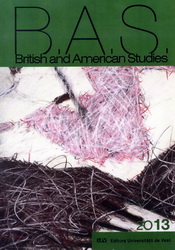LANGUAGE: ANARCHISM, CLASS AND SEXUALITY IN D. H. LAWRENCE’S THE DAUGHTER-IN-LAW
LANGUAGE: ANARCHISM, CLASS AND SEXUALITY IN D. H. LAWRENCE’S THE DAUGHTER-IN-LAW
Author(s): Armela PanajotiSubject(s): Literary Texts
Published by: Editura Universităţii de Vest din Timişoara / Diacritic Timisoara
Keywords: anarchism; class; D. H. Lawrence; dialect speech; family tension; sexuality;
Summary/Abstract: The paper focuses on one of D. H. Lawrence’s plays, “The Daughter-inlaw”, now often considered his best and restored to the world of theatre after Lawrence’s reputation as a dramatist was reevaluated in the 1960s. One of the striking features of this play is the use of dialect, which makes it at times difficult to follow. I argue that language and linguistic variation serve Lawrence to deal with matters of human relations in a ‘kitchen-sink’ type of context, where sonmother and husband-wife relationships are revisited, thus revealing issues of class and sexuality in an anarchic, external atmosphere enveloping the events in the play.
Journal: B.A.S. British and American Studies
- Issue Year: 2013
- Issue No: 19
- Page Range: 15-22
- Page Count: 8
- Language: English

